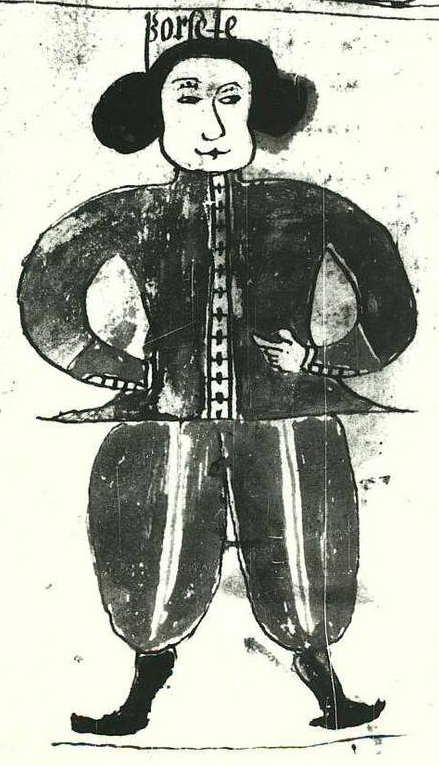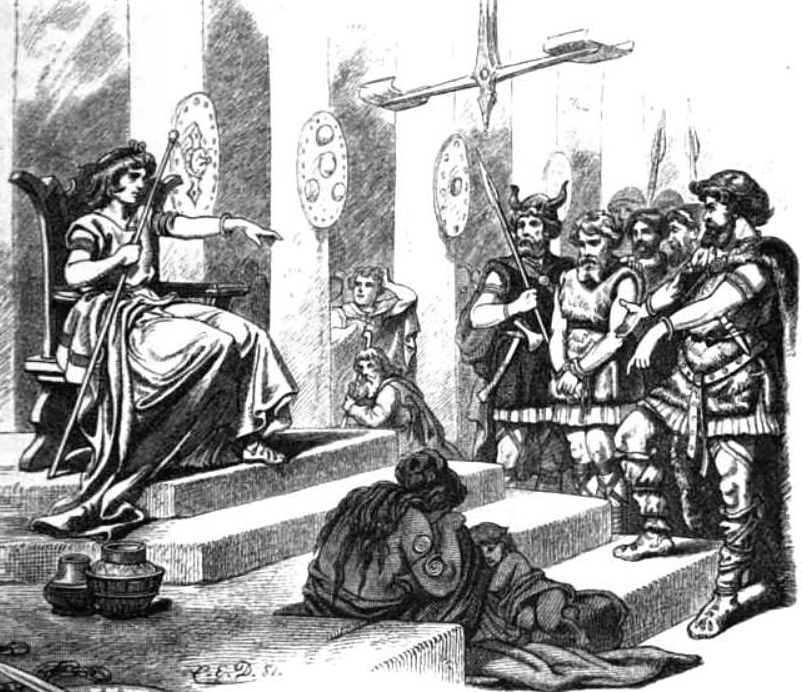Even the gods of Asgard have disagreements, and Forseti, the Norse god of justice, is there to settle their disputes. He is the son of Baldr and Nanna and is considered one of Asgard's wisest gods. All Æsir gods and goddesses, from the mighty Odin, Thor, and Loki, would settle god-like disputes in front of Forseti.
What is Forseti the God of?
Forseti is justice’s god, and little is known about him.
The etymology of his name leaves no room for speculation. In Old Norse, Forseti translates to “chairman.” The modern Icelandic language is most closely related to spoken Old Norse, and Forseti translates to “president.”
Even though he is attributed as one of the prevalent gods of Asgard, he is only mentioned by Snorri Sturluson in the Prose Edda and more modern archeological finds. He lives within Asgard with other Æsir gods and settles their disputes within his glittering halls of Glitnir.
As described in Snorri Sturluson’s Prose Edda, Glitnir (which translates to ‘one who shines’) is so bright and shiny that it glows. However, Forseti isn’t the only god of justice in town.

Forseti Vs. Tyr
Within Norse mythology, there is an overlap between Forseti and Tyr. Both are described as gods of justice, but there are subtle differences between the two.
With very few surviving texts about these two gods, scholars depend upon the work of the Prose Edda, the Poetic Edda, and the dew surviving texts to understand more of these elusive and competing gods.
In the Prose Edda, Tyr was more involved in war and justice, while Forseti wasn’t much of a fighter. Tyr played a significant role in the Norse world’s end, Ragnarök. Tyr ultimately dies at the hands of the guard dog of Hel, Garm. On the other hand, Forseti is one of the few surviving Æsir gods to help build the new world after Asgard falls.
Forseti Attestations
Poetic Edda
Forseti is mentioned infrequently in the Poetic Edda. In the Grímnismál, we learn that Forseti lives in the glittering halls of Glitnir. That’s it.
Prose Edda
In the Prose Edda, Snorri Sturluson’ goes into more detail about Forseti’s parents. However, many scholars question how Snorri arrived at that conclusion.
He may have had access to information that is lost, or he may have drawn lines where there were none.
Frisian Legend
Some scholars make the connection between the Frisian god Fosite and Forseti. According to the book Life of St. Willebrord by Alcuin, there was a spring between Denmark and Frisia (known as Heligoland) honoring the god Forseti, or Forsite.
Additionally, in the region of Frisa, an old late-medieval legend could reference Forseti. When Charlemagne demanded law speakers recite the laws on the land, he cast them out in a rudderless boat when they failed.
These twelve men prayed for help, and a thirteenth man appeared with a golden axe and cast them ashore.
Because he wielded a golden axe (much like the golden pillars of Glitnir), it was interpreted as Forseti. However, this interpretation is purely speculatory.
The Role of Forseti in Norse Myths
Norse mythology is ripe with tales of epic battles, honorable Vikings, and feats of strength conquering over weakness. However, Forseti is a different type of Æsir god. He isn’t interested in fighting like his other Æsir counterparts. Even Tyr, another god of justice, plays his role (and ultimately perishes) on the battlefield.
Forseti is an even-tempered god that doesn’t take part in physical altercations. His even temper makes him a great mediator, and his reluctance to fight makes him one of the few Æsir gods to survive Ragnarök.

